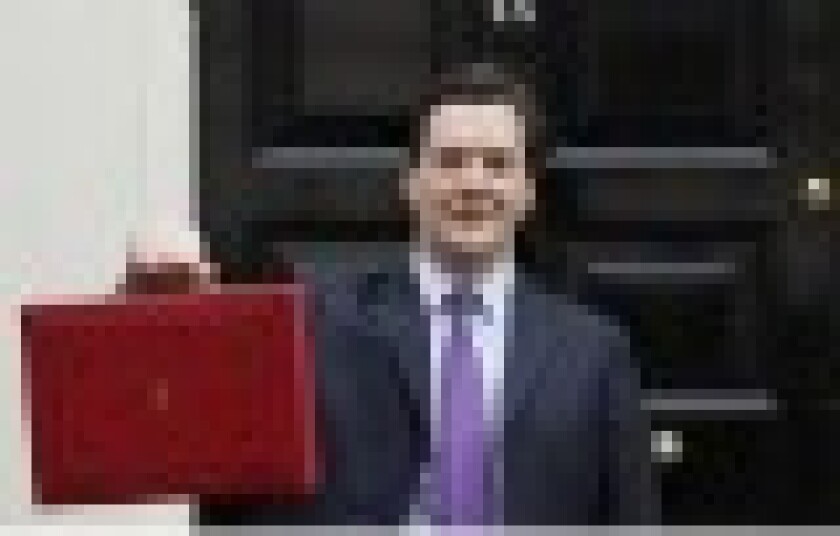Focus on business
After seeing last year’s budget turn into a farcical merry-go-round dominated by the U-turns on the “pasty tax” (VAT on heated food which is left to cool down) and “caravan tax” on static homes, Osborne will be keen to appease the public this time around.
However, businesses want to ensure that fear of incurring the public’s wrath does not deter Osborne from implementing the business-friendly, pro-growth measures they feel the UK needs.
A recent study frommember-based advisory company CEB has shown that confidence among European businesses is at its highest level in a year, indicating that businesses in the UK and elsewhere in Europe are more optimistic about the future. Growth-friendly measures from Osborne tomorrow would reinforce this confidence.
“It’s encouraging to see an up-lift in executive confidence across Europe,” said Paul Dennis, senior director at CEB. “While no one believes the Eurozone crisis is solved, executives are starting to focus less on short-term scenario planning and more on the longer-term drivers of sustainable growth for their businesses.”
Michael Wistow, head of tax at Berwin Leighton Paisner (BLP), wants the chancellor to avoid allowing the tax system to operate like an honesty box, arguing the “current polarised view of companies as either good taxpayers or egregious tax avoiders is preventing healthy and constructive debate about the tax system”.
If politicians are unhappy about the amount of tax being paid by companies, Wistow said they should “set a clear and simple regime”, adding that “allowing businesses to be brow-beaten into ad hoc contributions is not the way to run a tax system”.
He called on Osborne to “back business, not bow to populism”, saying this could be done in two ways:
“Use tax to deliver business-friendly policies and investment incentives which HMRC must be prohibited from subsequently calling avoidance when used,” said Wistow. “And adopt a dynamic approach to tax rather than a revenue-reducing, populist one. In short, if Osborne takes control of HMRC [which Wistow says has expanded its own remit by reinterpreting parliamentary legislation] and the tax legislation process, a good tax system will follow.”
“The dog must wag the tail, not the other way around,” he added.
Avoidance involving offshore employment intermediaries
Sean Drury, head of employment taxes at PwC, cautiously welcomed the March 18 government announcement of the consultation to tackle tax avoidance involving offshore employment intermediaries, saying: “We hope sensible legislation will follow to ensure that UK employees, working exclusively for the benefit of companies located here, are all treated the same for employment taxes purposes irrespective of the location of their payroll.”
However, he warned that the consultation must not result in the UK becoming less attractive or competitive.
“Offshore employment intermediaries remain important for businesses needing internationally mobile workers who can be based all over the world, especially in the oil and gas sector,” said Drury. “Care will be needed to prevent any unintended consequences for businesses with important commercial reasons for using offshore employment intermediaries. It would be a shame if we rushed through the consultation process resulting in the UK becoming less attractive as a hub for some of our key industries.”
SME wish-list
While multinationals will be hoping the expected percentage point cut in the corporate tax rate is confirmed, small and medium-sized enterprises (SMEs) have other priorities in what they are hoping to hear Osborne announce.
Patrick King, tax partner at accountancy firm MHA MacIntyre Hudson, believes the government must encourage people to invest in SMEs by taking away the element of risk that comes with such investment.
“SMEs should be seen as the engine of UK recovery. Recent figures, which indicate UK GDP decreased by 0.3% between the third and fourth quarter of 2012, have reiterated the need for cautious optimism among SMEs,” he said. “This has further underlined the need for more to be done to eliminate risk and improve access to finance for SMEs in the 2013 Budget.”
“Most importantly, the budget needs to focus on reducing the risk associated with investing in SMEs. For example, if an individual lends cash to a business, and the business continues to make money, you retain status quo. However, if the business goes bust, the lender loses their money as the only relief they get is capital loss offset against capital gains. Therefore, the risk for investing remains too high,” said King. “Reducing this risk would go a long way to encouraging further growth through investment. If the loss is set against income tax at 45%, you reduce the risk to the investor.”
Further reading:










